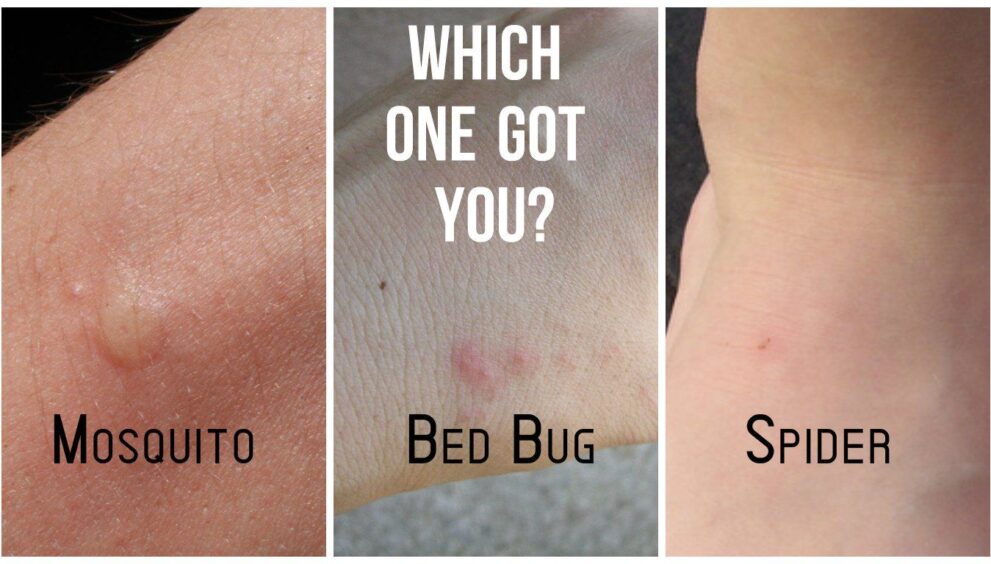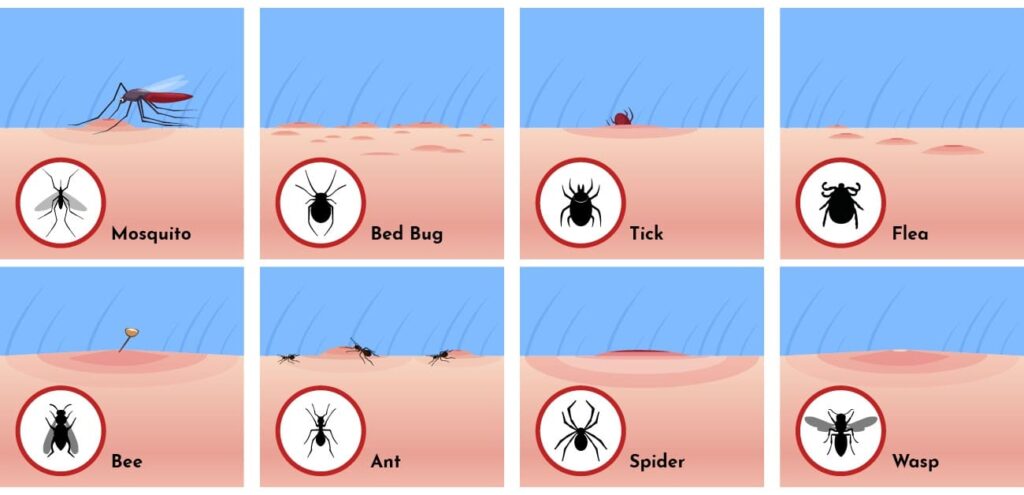Spider Bite Vs Mosquito Bite – What is more Dangerous

When it comes to outdoor adventures or simply enjoying a peaceful evening on the porch, encounters with insects are almost inevitable. Among the myriad of tiny creatures, spiders and mosquitoes are common players. While their bites may seem like minor inconveniences, it’s essential to understand the differences between a spider bite vs mosquito bite, as the consequences can vary significantly.
The Sneaky Sting: Unmasking the Mosquito Bite
Mosquitoes, the notorious bloodsuckers of the insect world, are stealthy in their approach. Their bites often go unnoticed until the aftermath—a red, itchy welt that can drive anyone to the brink of madness. The discomfort arises from an allergic reaction to the mosquito’s saliva injected into the skin during feeding.
The Web of Venom: Decoding the Spider Bite
On the other hand, spiders, with their eight legs and intricate webs, evoke fear and fascination. While most spider bites are harmless, there are venomous species that can cause severe reactions. The redness, swelling, and pain associated with a spider bite result from the injection of venom, which varies in potency among different spider species.
Dentifying the Culprit: How to Differentiate Spider Bites vs Mosquito Bites
Understanding the nuances between spider bites and mosquito bites is crucial for effective treatment. Mosquito bites, often characterized by their itchy and round appearance, are relatively common. However, spider bites, though less frequent, can lead to more severe consequences. Recognizing the immediate symptoms, such as itching and discomfort for mosquito bites and pain, swelling, or redness for spider bites, aids in pinpointing the culprit. By closely observing the initial reactions, individuals can take timely measures to alleviate discomfort and determine the appropriate course of action.

Distinguishing Characteristics: Spider Bite vs Mosquito Bite
1. Appearance:
- Mosquito bites typically present as round, puffy, and itchy welts.
- Spider bites may appear as red, raised lesions with a central blister or ulcer.
2. Immediate Symptoms:
- Mosquito bites usually cause immediate itching and discomfort.
- Spider bites can lead to immediate pain, swelling, and redness, depending on the spider species.
3. Aftermath:
- Mosquito bites tend to resolve on their own within a few days.
- Spider bites may require medical attention if symptoms worsen or if the spider is venomous.
Navigating Treatment: When to DIY and When to Seek Professional Help
For the majority of mosquito bites, over-the-counter remedies like antihistamines or topical creams can provide relief. However, spider bites, especially those from venomous species, demand a more cautious approach. If the symptoms escalate beyond typical discomfort, seeking professional medical advice is paramount. Understanding the aftermath of these bites—self-resolving for mosquito bites and potentially escalating for spider bites—empowers individuals to make informed decisions about their health. In essence, distinguishing between the two allows for tailored treatment strategies, ensuring that each bite receives the attention it deserves.
The Danger Within: Recognizing When to Seek Help
While most mosquito bites are a mere annoyance, certain spiders, such as the black widow or brown recluse, can pose a more significant threat. If you experience severe symptoms such as difficulty breathing, chest pain, or muscle cramps, seek medical attention immediately.
In conclusion, both spider bites and mosquito bites have their own set of discomforts, and the level of danger varies. Understanding the characteristics of each bite allows for proper identification and appropriate measures for relief. Remember, prevention is key—use insect repellent, wear protective clothing, and stay vigilant in areas where these tiny creatures thrive.
As you embark on your outdoor escapades, armed with the knowledge of spider bite vs mosquito bite distinctions, you can navigate the world of insects with confidence and safeguard against potential dangers. Stay informed, stay bite-free!













